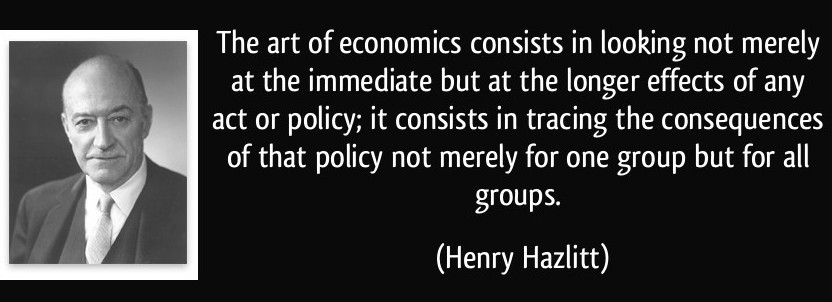|
home | what's new | other sites | contact | about |
||
|
Word Gems exploring self-realization, sacred personhood, and full humanity
Henry Hazlitt Economics In One Lesson Inflation
... it seems desirable to ask why inflation has been constantly resorted to, why it has had an immemorial popular appeal, and why its siren music has tempted one nation after another down the path to economic disaster.
"That wealth consists in money, or in gold and silver," wrote Adam Smith nearly two centuries ago, "is a popular notion which naturally arises from the double function of money, as the instrument of commerce, and as the measure of value . . . . To grow rich is to get money; and wealth and money, in short, are, in common language, considered as in every respect synonymous." Each man sees that if he personally had more money he could buy more things from others. If he had twice as much money he could buy twice as many things; if he had three times as much money he would be "worth" three times as much. And to many the conclusion seems obvious that if the government merely issued more money and distributed it to everybody, we should all be that much richer. There is a second group, less naive, who see that if the whole thing were as easy as that the government could solve all our problems merely by printing money. They sense that there must be a catch somewhere; so they would limit in some way the amount of additional money they would have the government issue. They would have it print just enough to make up some alleged "deficiency" or "gap."...
Even a relatively mild inflation distorts the structure of production. It leads to the overexpansion of some industries at the expense of others. This involves a misapplication and waste of capital. When the inflation collapses, or is brought to a halt, the misdirected capital investment--whether in the form of machines, factories or office buildings--cannot yield an adequate return and loses the greater part of its value... ... inflation does not and cannot affect everyone evenly. Some suffer more than others. The poor are usually more heavily taxed by inflation, in percentage terms, than the rich, for they do not have the same means of protecting themselves by speculative purchases of real equities.
The rate of tax imposed by inflation is not a fixed one: it cannot be determined , in advance. We know what it is today; we do not know what it will be tomorrow; and tomorrow we shall not know what it will be on the day after. Like every other tax, inflation acts to determine the individual and business policies we are all forced to follow.
Its inexcusable injustices drive men toward desperate remedies.
|
||
|
|

